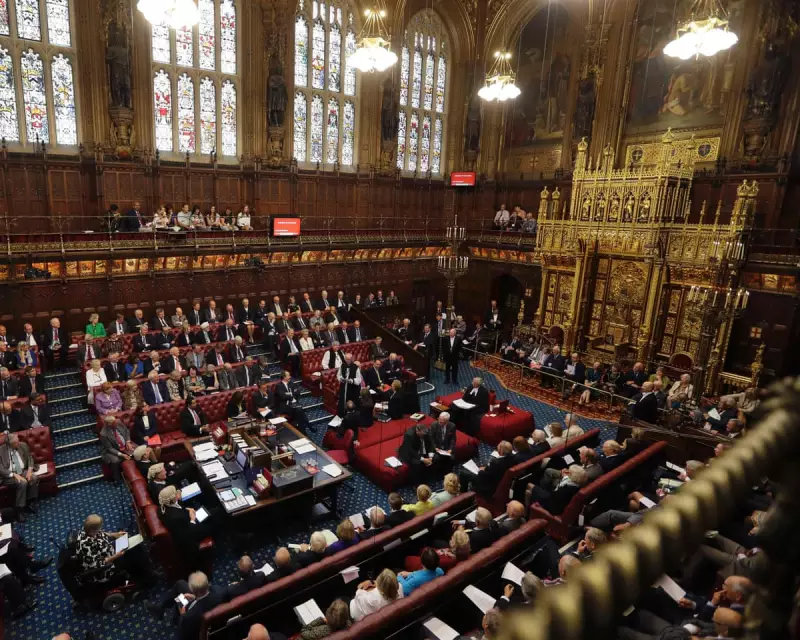
Peers Launch Legislative Offensive Against Assisted Dying Bill
The House of Lords is preparing for a dramatic confrontation on Friday as peers opposed to assisted dying legislation have tabled a staggering 942 amendments in what critics are calling an attempt to filibuster the bill. This move represents one of the most significant legislative battles in recent parliamentary history, with opponents seeking to effectively talk the bill to death through procedural means.
Concentration of Opposition Efforts
More than half of these amendments have been submitted by just seven members of the upper house, all of whom are vocal opponents of assisted dying. The sheer volume of proposed changes could potentially overwhelm the legislative process, forcing peers to vote on hundreds of individual amendments and effectively running down the clock on the bill's progress.
A source close to the legislation confirmed that if peers push all amendments to a vote, the bill could be effectively filibustered. This private member's bill, originally introduced by Labour MP Kim Leadbeater, successfully passed the House of Commons in June and has now moved to the Lords for scrutiny.
Democratic Principles Under Scrutiny
The tactics have sparked a fierce debate about the proper role of the unelected chamber. On Thursday night, 65 prominent figures including two cabinet secretaries, former Labour leader Neil Kinnock, and former Tory leader Ruth Davidson signed a letter warning that it would be profoundly anti-democratic for the Lords to kill legislation that had been passed by a reasonable majority in the elected Commons.
The signatories, who also included former lords speaker Helene Hayman, scientist Robert Winston, and former Green leader Natalie Bennett, emphasised that the Lords' role should be to refine legislation, not to frustrate the democratic will. They stated clearly: "It is not our role to frustrate the clear democratic mandate expressed by elected Members."
Opponents of the bill counter that because assisted dying was not included in the government's manifesto, the usual rules about Commons primacy don't apply. They also benefit from the fact that unlike in the Commons, the lord speaker lacks the power to select or group amendments to limit their number.
Key Players in the Debate
Among those leading the amendment effort are prominent figures with strong views on the subject. Ilora Finlay, a former doctor and major campaigner against assisted dying, has tabled more than 100 amendments. She is joined by former Paralympian Tanni Grey-Thompson, who has also submitted over 100 amendments and has been a key voice arguing that the legislation would put disabled people at risk.
Former health secretary Thérèse Coffey has contributed 60 amendments to the effort. These opponents argue that the bill contains significant flaws that could harm vulnerable people if not substantially amended.
Labour's Luciana Berger, who opposes the legislation, pointed to evidence from the Equality and Human Rights Commission that strongly criticised the government's equality impact assessment. She also raised concerns that palliative care developments have slowed in jurisdictions that introduced assisted dying.
Confidence in Conventional Process
Despite the massive amendment effort, supporters of the bill remain optimistic about its prospects. Backers suggest there is still a high expectation that the legislation will pass, noting that most peers typically follow convention and respect the will of the elected chamber.
One supporter expressed confidence that "there is a clear majority in the Lords – including opponents as well as supporters of the bill – who believe the upper house should scrutinise but not seek to frustrate the will of the elected chamber."
The coming days will test whether parliamentary conventions and democratic principles can withstand this coordinated legislative assault, with the fate of landmark assisted dying legislation hanging in the balance.





